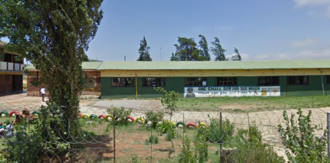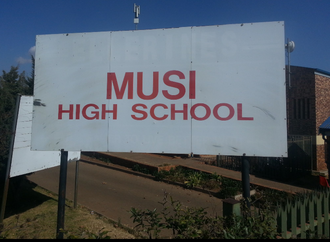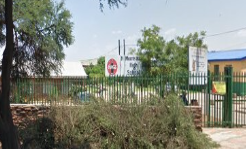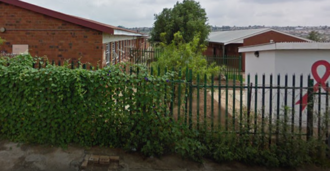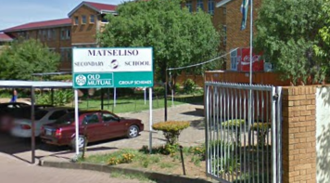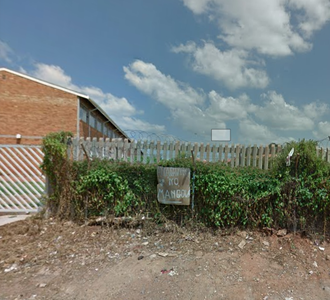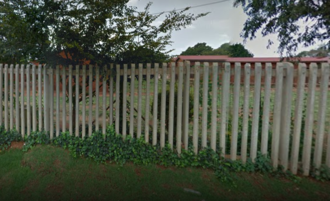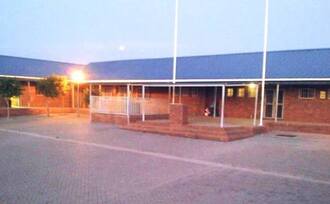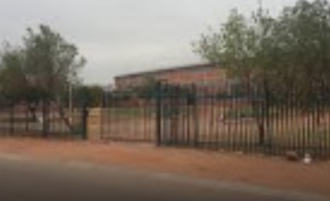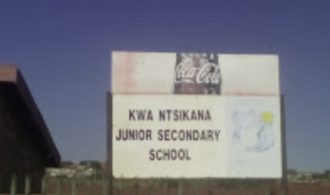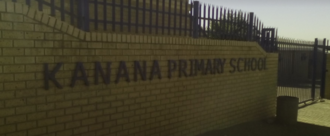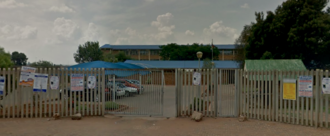- Featured
- Clean air
- Climate justice
- Consumer Rights
- Corporate Accountability
- Data access
- Early Childhood Development
- Economic fairness
- Education
- Electoral fairness
- Environmental justice
- Food justice
- Gender based violence
- Grants/social assistance
- Health
- Housing and infrastructure
- Industry interference
- Land Justice
- LGBTQIA+ rights
- Media/ information access
- Public transport
- Racism
- Reparations
- Safety
- Sanitation
- Service Delivery
- Sexual and Reproductive Rights
- Social justice
- Unemployment
- Womxn's rights/ gender equality
- Workers' rights
- More
-
Sign to demand healthy food for Mzamo Primary SchoolEnsuring our children aren't hungry is our first priority as a community, but often the cheapest foods are unhealthy and can lead to health issues in our children, now and in the future, including type 2 diabetes, heart disease, high blood pressure, joint pain and certain cancers, which can be the result of lack of access to healthy food. We asked your school questions about what food most learners buy for lunch, and most said they buy kotas from vendors with sugary drinks. Learners also bought ice lollies, sweets and ice creams. This is not a balanced diet, and what we eat affects how much we can concentrate, and how sick we will get in the future. We use to have to just worry about HIV/AIDS, TB and other diseases, but now diseases like type 2 diabetes are increasing in our communities. The other reason we are getting sicker is because greedy junk food companies are aggressively marketing their products in our schools. But we can change this, if enough of us come together, we can ensure our voices are heard by the the MECs of Education and Health. If you don’t have email, you can join the campaign for free by dialing this code on your phone *134*1994*456#2 of 100 SignaturesCreated by Amandla.mobi Member
-
Sign to demand healthy food for Musi High SchoolEnsuring our children aren't hungry is our first priority as a community, but often the cheapest foods are unhealthy and can lead to health issues in our children, now and in the future, including type 2 diabetes, heart disease, high blood pressure, joint pain and certain cancers, which can be the result of lack of access to healthy food. We asked your school questions about what food most learners buy for lunch, and most said they buy kotas from vendors with sugary drinks. Learners also bought ice lollies, sweets and ice creams. This is not a balanced diet, and what we eat affects how much we can concentrate, and how sick we will get in the future. We use to have to just worry about HIV/AIDS, TB and other diseases, but now diseases like type 2 diabetes are increasing in our communities. The other reason we are getting sicker is because greedy junk food companies are aggressively marketing their products in our schools. But we can change this, if enough of us come together, we can ensure our voices are heard by the the MECs of Education and Health. If you don’t have email, you can join the campaign for free by dialing this code on your phone *134*1994*456#1 of 100 SignaturesCreated by Amandla.mobi Member
-
Sign to demand healthy food for Morris Isaacson High SchoolEnsuring our children aren't hungry is our first priority as a community, but often the cheapest foods are unhealthy and can lead to health issues in our children, now and in the future, including type 2 diabetes, heart disease, high blood pressure, joint pain and certain cancers, which can be the result of lack of access to healthy food. We asked your school questions about what food most learners buy for lunch, and most said they buy kotas from vendors with sugary drinks. Learners also bought ice lollies, sweets and ice creams. This is not a balanced diet, and what we eat affects how much we can concentrate, and how sick we will get in the future. We use to have to just worry about HIV/AIDS, TB and other diseases, but now diseases like type 2 diabetes are increasing in our communities. The other reason we are getting sicker is because greedy junk food companies are aggressively marketing their products in our schools. But we can change this, if enough of us come together, we can ensure our voices are heard by the the MECs of Education and Health. If you don’t have email, you can join the campaign for free by dialing this code on your phone *134*1994*456#1 of 100 SignaturesCreated by Amandla.mobi Member
-
Sign to demand healthy food for Mncube Secondary SchoolEnsuring our children aren't hungry is our first priority as a community, but often the cheapest foods are unhealthy and can lead to health issues in our children, now and in the future, including type 2 diabetes, heart disease, high blood pressure, joint pain and certain cancers, which can be the result of lack of access to healthy food. We asked your school questions about what food most learners buy for lunch, and most said they buy kotas from vendors with sugary drinks. Learners also bought ice lollies, sweets and ice creams. This is not a balanced diet, and what we eat affects how much we can concentrate, and how sick we will get in the future. We use to have to just worry about HIV/AIDS, TB and other diseases, but now diseases like type 2 diabetes are increasing in our communities. The other reason we are getting sicker is because greedy junk food companies are aggressively marketing their products in our schools. But we can change this, if enough of us come together, we can ensure our voices are heard by the the MECs of Education and Health. If you don’t have email, you can join the campaign for free by dialing this code on your phone *134*1994*456#1 of 100 SignaturesCreated by Amandla.mobi Member
-
Sign to demand healthy food for Matseliso Secondary SchoolEnsuring our children aren't hungry is our first priority as a community, but often the cheapest foods are unhealthy and can lead to health issues in our children, now and in the future, including type 2 diabetes, heart disease, high blood pressure, joint pain and certain cancers, which can be the result of lack of access to healthy food. We asked your school questions about what food most learners buy for lunch, and most said they buy kotas from vendors with sugary drinks. Learners also bought ice lollies, sweets and ice creams. This is not a balanced diet, and what we eat affects how much we can concentrate, and how sick we will get in the future. We use to have to just worry about HIV/AIDS, TB and other diseases, but now diseases like type 2 diabetes are increasing in our communities. The other reason we are getting sicker is because greedy junk food companies are aggressively marketing their products in our schools. But we can change this, if enough of us come together, we can ensure our voices are heard by the the MECs of Education and Health. If you don’t have email, you can join the campaign for free by dialing this code on your phone *134*1994*456#1 of 100 SignaturesCreated by Amandla.mobi Member
-
Sign to demand healthy food for Masiqhakaze Secondary SchoolEnsuring our children aren't hungry is our first priority as a community, but often the cheapest foods are unhealthy and can lead to health issues in our children, now and in the future, including type 2 diabetes, heart disease, high blood pressure, joint pain and certain cancers, which can be the result of lack of access to healthy food. We asked your school questions about what food most learners buy for lunch, and most said they buy kotas from vendors with sugary drinks. Learners also bought ice lollies, sweets and ice creams. This is not a balanced diet, and what we eat affects how much we can concentrate, and how sick we will get in the future. We use to have to just worry about HIV/AIDS, TB and other diseases, but now diseases like type 2 diabetes are increasing in our communities. The other reason we are getting sicker is because greedy junk food companies are aggressively marketing their products in our schools. But we can change this, if enough of us come together, we can ensure our voices are heard by the the MECs of Education and Health. If you don’t have email, you can join the campaign for free by dialing this code on your phone *134*1994*456#1 of 100 SignaturesCreated by Amandla.mobi Member
-
Sign to demand healthy food for Marhulani Primary SchoolEnsuring our children aren't hungry is our first priority as a community, but often the cheapest foods are unhealthy and can lead to health issues in our children, now and in the future, including type 2 diabetes, heart disease, high blood pressure, joint pain and certain cancers, which can be the result of lack of access to healthy food. We asked your school questions about what food most learners buy for lunch, and most said they buy kotas from vendors with sugary drinks. Learners also bought ice lollies, sweets and ice creams. This is not a balanced diet, and what we eat affects how much we can concentrate, and how sick we will get in the future. We use to have to just worry about HIV/AIDS, TB and other diseases, but now diseases like type 2 diabetes are increasing in our communities. The other reason we are getting sicker is because greedy junk food companies are aggressively marketing their products in our schools. But we can change this, if enough of us come together, we can ensure our voices are heard by the the MECs of Education and Health. If you don’t have email, you can join the campaign for free by dialing this code on your phone *134*1994*456#1 of 100 SignaturesCreated by Amandla.mobi Member
-
Sign to demand healthy food for Maphutha Secondary SchoolEnsuring our children aren't hungry is our first priority as a community, but often the cheapest foods are unhealthy and can lead to health issues in our children, now and in the future, including type 2 diabetes, heart disease, high blood pressure, joint pain and certain cancers, which can be the result of lack of access to healthy food. We asked your school questions about what food most learners buy for lunch, and most said they buy kotas from vendors with sugary drinks. Learners also bought ice lollies, sweets and ice creams. This is not a balanced diet, and what we eat affects how much we can concentrate, and how sick we will get in the future. We use to have to just worry about HIV/AIDS, TB and other diseases, but now diseases like type 2 diabetes are increasing in our communities. The other reason we are getting sicker is because greedy junk food companies are aggressively marketing their products in our schools. But we can change this, if enough of us come together, we can ensure our voices are heard by the the MECs of Education and Health. If you don’t have email, you can join the campaign for free by dialing this code on your phone *134*1994*456#1 of 100 SignaturesCreated by Amandla.mobi Member
-
Sign to demand healthy food for Lamula Jubilee Secondary SchoolEnsuring our children aren't hungry is our first priority as a community, but often the cheapest foods are unhealthy and can lead to health issues in our children, now and in the future, including type 2 diabetes, heart disease, high blood pressure, joint pain and certain cancers, which can be the result of lack of access to healthy food. We asked your school questions about what food most learners buy for lunch, and most said they buy kotas from vendors with sugary drinks. Learners also bought ice lollies, sweets and ice creams. This is not a balanced diet, and what we eat affects how much we can concentrate, and how sick we will get in the future. We use to have to just worry about HIV/AIDS, TB and other diseases, but now diseases like type 2 diabetes are increasing in our communities. The other reason we are getting sicker is because greedy junk food companies are aggressively marketing their products in our schools. But we can change this, if enough of us come together, we can ensure our voices are heard by the the MECs of Education and Health. If you don’t have email, you can join the campaign for free by dialing this code on your phone *134*1994*456#1 of 100 SignaturesCreated by Amandla.mobi Member
-
Sign to demand healthy food for KwaNtsikana Secondary SchoolEnsuring our children aren't hungry is our first priority as a community, but often the cheapest foods are unhealthy and can lead to health issues in our children, now and in the future, including type 2 diabetes, heart disease, high blood pressure, joint pain and certain cancers, which can be the result of lack of access to healthy food. We asked your school questions about what food most learners buy for lunch, and most said they buy kotas from vendors with sugary drinks. Learners also bought ice lollies, sweets and ice creams. This is not a balanced diet, and what we eat affects how much we can concentrate, and how sick we will get in the future. We use to have to just worry about HIV/AIDS, TB and other diseases, but now diseases like type 2 diabetes are increasing in our communities. The other reason we are getting sicker is because greedy junk food companies are aggressively marketing their products in our schools. But we can change this, if enough of us come together, we can ensure our voices are heard by the the MECs of Education and Health. If you don’t have email, you can join the campaign for free by dialing this code on your phone *134*1994*456#1 of 100 SignaturesCreated by Amandla.mobi Member
-
Sign to demand healthy food for Kanana Primary learnersEnsuring our children aren't hungry is our first priority as a community, but often the cheapest foods are unhealthy and can lead to health issues in our children, now and in the future, including type 2 diabetes, heart disease, high blood pressure, joint pain and certain cancers, which can be the result of lack of access to healthy food. We asked your school questions about what food most learners buy for lunch, and most said they buy kotas from vendors with sugary drinks. Learners also bought ice lollies, sweets and ice creams. This is not a balanced diet, and what we eat affects how much we can concentrate, and how sick we will get in the future. We use to have to just worry about HIV/AIDS, TB and other diseases, but now diseases like type 2 diabetes are increasing in our communities. The other reason we are getting sicker is because greedy junk food companies are aggressively marketing their products in our schools. But we can change this, if enough of us come together, we can ensure our voices are heard by the the MECs of Education and Health. If you don’t have email, you can join the campaign for free by dialing this code on your phone *134*1994*456#2 of 100 SignaturesCreated by amandla mobi member

-
Sign to demand healthy food for Ikusasa learnersEnsuring our children aren't hungry is our first priority as a community, but often the cheapest foods are unhealthy and can lead to health issues in our children, now and in the future, including type 2 diabetes, heart disease, high blood pressure, joint pain and certain cancers, which can be the result of lack of access to healthy food. We asked your school questions about what food most learners buy for lunch, and most said they buy kotas from vendors with sugary drinks. Learners also bought ice lollies, sweets and ice creams. This is not a balanced diet, and what we eat affects how much we can concentrate, and how sick we will get in the future. We use to have to just worry about HIV/AIDS, TB and other diseases, but now diseases like type 2 diabetes are increasing in our communities. The other reason we are getting sicker is because greedy junk food companies are aggressively marketing their products in our schools. But we can change this, if enough of us come together, we can ensure our voices are heard by the the MECs of Education and Health. If you don’t have email, you can join the campaign for free by dialing this code on your phone *134*1994*456#2 of 100 SignaturesCreated by amandla mobi member

.png)
